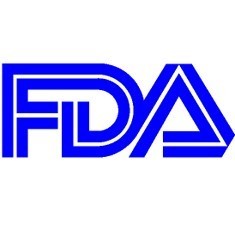Last update: 14 August 2015
The regulatory body for approval of medicines in the US is the Food and Drug Administration (FDA).
 0
Post your comment
0
Post your comment
Last update: 14 August 2015
The regulatory body for approval of medicines in the US is the Food and Drug Administration (FDA).

FDA applies the Food and Drug Regulations under the authority of the Federal Food, Drug, and Cosmetic Act.
Generic drug applications are submitted to FDA via an abbreviated new drug application (ANDA).
These applications are not generally required to include preclinical and clinical data to establish safety and effectiveness. Instead, generics applicants must scientifically demonstrate that their product is bioequivalent to the originator drug.
Using bioequivalence as the basis for approving generic versions of drugs was established by the Drug Price Competition and Patent Term Restoration Act of 1984, also known as the Waxman-Hatch Act. This act expedites the availability of less costly generic drugs by permitting FDA to approve applications to market generic versions of brand-name drugs without conducting costly and duplicative clinical trials. At the same time, the originator companies can apply for up to five additional years longer patent protection for the new medicines they developed to make up for time lost while their products were going through the FDA approval process.
1. Guidelines
FDA has issued the following guidelines for generics to provide industry with guidance in submitting ANDAs:
Providing regulatory submissions in electronic format — ANDAs
Date: June 2002
www.fda.gov/downloads/Drugs/DevelopmentApprovalProcess/FormsSubmissionRequirements/ElectronicSubmissions/UCM163188.pdf
180-day exclusivity when multiple ANDAs are submitted on the same day
Date: July 2003
www.fda.gov/downloads/Drugs/GuidanceComplianceRegulatoryInformation/Guidances/ucm072851.pdf
Alternate source of the active pharmaceutical ingredient in pending ANDAs
Date: December 2000
www.fda.gov/downloads/Drugs/GuidanceComplianceRegulatoryInformation/Guidances/ucm072853.pdf
ANDAs: impurities in drug products
Date: November 2010
www.fda.gov/downloads/Drugs/GuidanceComplianceRegulatoryInformation/Guidances/UCM072861.pdf
ANDAs: Pharmaceutical solid polymorphism: chemistry, manufacturing, and controls information
Date: July 2007
www.fda.gov/downloads/Drugs/GuidanceComplianceRegulatoryInformation/Guidances/ucm072866.pdf
Court decisions, ANDA approvals, and 180-Day exclusivity under the Hatch-Waxman amendments to the Federal Food, Drug, and Cosmetic Act
Date: March 2000
www.fda.gov/downloads/Drugs/GuidanceComplianceRegulatoryInformation/Guidances/ucm072868.pdf
Handling and retention of bioavailability and bioequivalence testing samples
Date: May 2004
www.fda.gov/downloads/Drugs/GuidanceComplianceRegulatoryInformation/Guidances/ucm072869.pdf
Individual product bioequivalence recommendations for specific products
Date: June 2010
www.fda.gov/downloads/Drugs/GuidanceComplianceRegulatoryInformation/Guidances/UCM072872.pdf
Major, minor, and telephone amendments to abbreviated new drug applications
Date: December 2001
www.fda.gov/downloads/Drugs/GuidanceComplianceRegulatoryInformation/Guidances/ucm072888.pdf
Potassium chloride modified-release tablets and capsules: in vivo bioequivalence and in vitro dissolution testing
Date: October 2005
www.fda.gov/ohrms/dockets/98fr/02d-0307-gdl0002.pdf
Revising ANDA labeling following revision of the RLD labeling
Date: May 2000
www.fda.gov/downloads/Drugs/GuidanceComplianceRegulatoryInformation/Guidances/ucm072891.pdf
Submission of summary bioequivalence data for ANDAs
Date: May 2011
www.fda.gov/downloads/Drugs/GuidanceComplianceRegulatoryInformation/Guidances/UCM134846.pdf
Variations drug products that may be included in a single ANDA
Date: December 1998
www.fda.gov/downloads/Drugs/GuidanceComplianceRegulatoryInformation/Guidances/ucm072892.pdf
ANDAs: stability testing of drug substances and products, questions and answers
Date: May 2014
www.fda.gov/downloads/drugs/guidancecomplianceregulatoryinformation/guidances/ucm366082.pdf
ANDAs: stability testing of drug substances and products
Date: June 2013
www.fda.gov/downloads/drugs/guidancecomplianceregulatoryinformation/guidances/ucm320590.pdf
ANDA submissions ― Refuse-to-receive standards
Date: September 2014
www.fda.gov/downloads/Drugs/GuidanceComplianceRegulatoryInformation/Guidances/UCM370352.pdf
Size, shape, and other physical attributes of generic tablets and capsules
Date: June 2015
http://www.fda.gov/ucm/groups/fdagov-public/@fdagov-drugs-gen/documents/document/ucm377938.pdf
2. Draft Guidelines
FDA has published the following draft guidelines with a view to developing finalized guidelines for generics:
Initial completeness assessments for Type II API DMFs under GDUFA
Date: October 2012
www.fda.gov/downloads/Drugs/GuidanceComplianceRegulatoryInformation/Guidances/UCM321884.pdf
Listed drugs, 30-month stays, and approval of ANDAs and 505(b)(2) applications under Hatch-Waxman, as amended by the Medicare Prescription Drug, Improvement, and Modernization Act of 2003 — questions and answers
Date: October 2004
www.fda.gov/downloads/Drugs/GuidanceComplianceRegulatoryInformation/Guidances/ucm072887.pdf
ANDA submissions — Content and format of abbreviated new drug applications
Date: June 2014
www.fda.gov/downloads/Drugs/GuidanceComplianceRegulatoryInformation/Guidances/UCM400630.pdf
ANDA submissions – Amendments and easily correctable deficiencies under GDUFA
Date: July 2014
www.fda.gov/downloads/Drugs/GuidanceComplianceRegulatoryInformation/Guidances/UCM404440.pdf
ANDA submissions – Prior approval supplements under GDUFA
Date: July 2014
www.fda.gov/downloads/Drugs/GuidanceComplianceRegulatoryInformation/Guidances/UCM404441.pdf
Controlled correspondence related to generic drug development
Date: August 2014
www.fda.gov/downloads/Drugs/GuidanceComplianceRegulatoryInformation/Guidances/UCM411478.pdf
ANDA submissions — Refuse to receive for lack of proper justification of impurity limits
Date: September 2014
www.fda.gov/downloads/Drugs/GuidanceComplianceRegulatoryInformation/Guidances/UCM414598.pdf
3. Draft Guidelines for Generic User Fees
FDA has published the following draft guidelines to assist sponsors with self-identification and payment of generic drug user fees:
Generic drug user fee amendments of 2012: questions and answers (revision 1)
Date: September 2013
www.fda.gov/downloads/Drugs/GuidanceComplianceRegulatoryInformation/Guidances/UCM316671.pdf
Self-identification of generic drug facilities, sites, and organizations
Date: August 2012
www.fda.gov/downloads/Drugs/GuidanceComplianceRegulatoryInformation/Guidances/UCM316672.pdf
4. Letters
FDA has issued letters on specific issues, which can be found at the following:
www.fda.gov/Drugs/GuidanceComplianceRegulatoryInformation/Guidances/ucm064995.htm
Related articles
FDA publishes guidance on ANDAs for new strengths
FDA issues new bioequivalence guidance for generics
Permission granted to reproduce for personal and non-commercial use only. All other reproduction, copy or reprinting of all or part of any ‘Content’ found on this website is strictly prohibited without the prior consent of the publisher. Contact the publisher to obtain permission before redistributing.
Copyright – Unless otherwise stated all contents of this website are © 2015 Pro Pharma Communications International. All Rights Reserved.
Source: FDA
EU accepts results from FDA GMP inspections for sites outside the US
WHO to remove animal tests and establish 17 reference standards for biologicals
The best selling biotechnology drugs of 2008: the next biosimilars targets
Global biosimilars guideline development – EGA’s perspective
US guidance to remove biosimilar comparative efficacy studies
New guidance for biologicals in Pakistan and Hong Kong’s independent drug regulatory authority
Canada poised to remove requirement for Phase III trials for biosimilars
European position paper on AI in medicinal product lifecycle



Post your comment